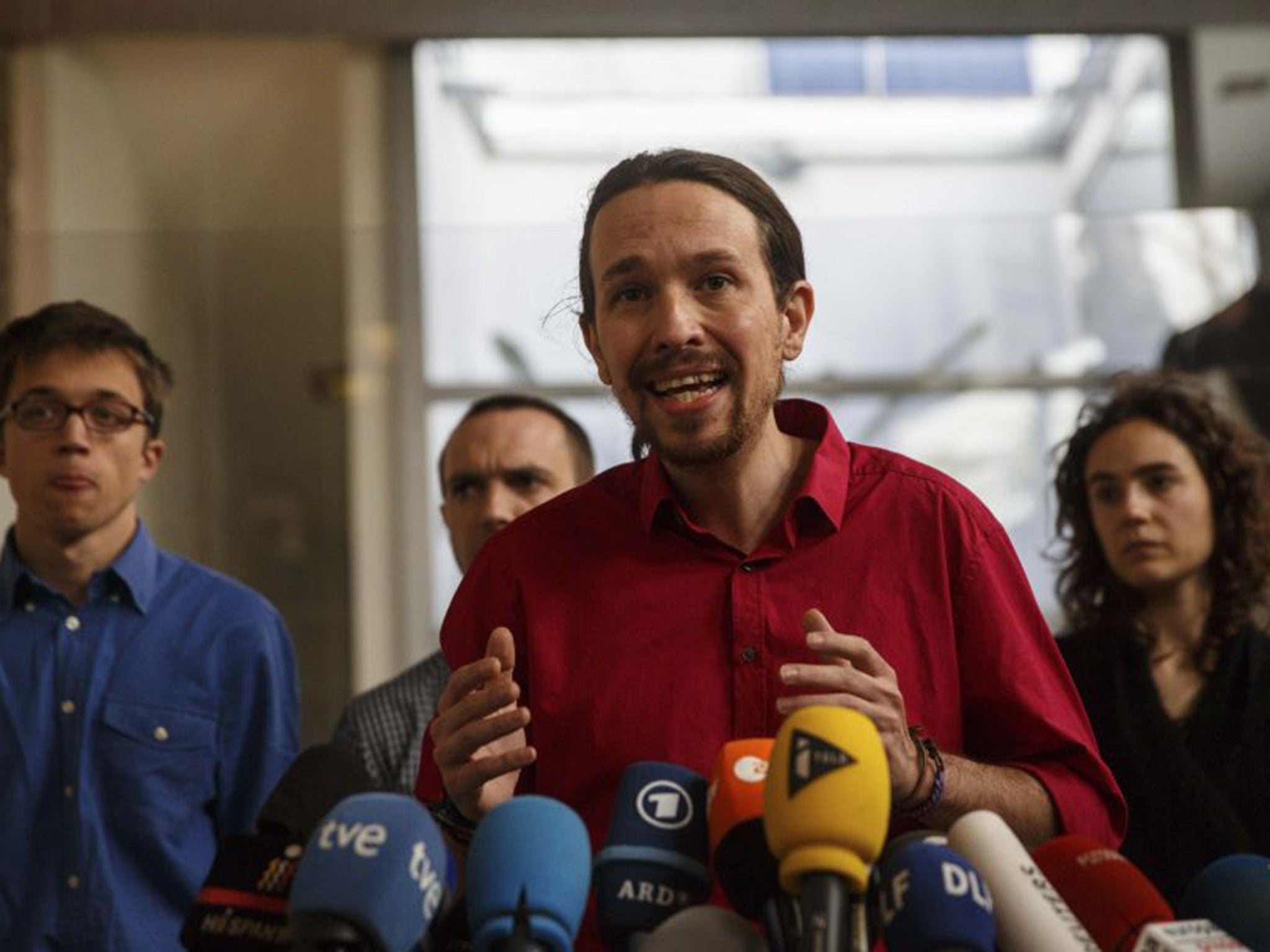Greece elections: Spanish left hails Syriza victory as a ‘sun of hope and democracy’
Podemos leader Pablo Iglesias, present in Greece last week as a Syriza guest, called the results 'magnificent news'

Your support helps us to tell the story
From reproductive rights to climate change to Big Tech, The Independent is on the ground when the story is developing. Whether it's investigating the financials of Elon Musk's pro-Trump PAC or producing our latest documentary, 'The A Word', which shines a light on the American women fighting for reproductive rights, we know how important it is to parse out the facts from the messaging.
At such a critical moment in US history, we need reporters on the ground. Your donation allows us to keep sending journalists to speak to both sides of the story.
The Independent is trusted by Americans across the entire political spectrum. And unlike many other quality news outlets, we choose not to lock Americans out of our reporting and analysis with paywalls. We believe quality journalism should be available to everyone, paid for by those who can afford it.
Your support makes all the difference.As Spain gears up for a crucial year of national, local and regional elections, its increasingly popular anti-austerity party Podemos has celebrated the victory of Syriza in Greece by pouring scorn on those “who thought it represented the apocalypse”.
Podemos leader Pablo Iglesias, present in Greece last week as a Syriza guest, called the results “magnificent news”. He said: “The sun has risen again, a sun of hope and democracy working normally.”
The Syriza victory had, he added, confirmed voters’ rejection of austerity as a solution to their economic woes. The head of the European branch of Spain’s ruling Partido Popular party, Antonio López-Izturis, was quick to play down the Syriza victory, predicting they would “renege on a large part of their political programme”. He also accused Mr Iglesias and Podemos of “political opportunism”.
Opportunistic or not, Podemos’ message has struck a note with a significant number of Spanish voters. Barely a year after its creation, Podemos is regularly ranked amongst the top three parties in polls.
Mr Iglesias’ affinity with Greece’s new governing party was clear when he joined them at a campaign meeting on Thursday, announcing: “Change in Greece is called Syriza, change in Spain is called Podemos. Hope is coming. Onwards to victory with Syriza-Podemos.” Mr Tsipras had been present, too, as a guest of honour at a Podemos congress in November in Spain.
Perhaps the only point that Spain’s different parties agreed on yesterday was that “Spain is not Greece”, with far less acute social and economic difficulties. Some similarities, such as rampant unemployment – still at 24 per cent in Spain – remain, however.
Meanwhile, beyond Italian Prime Minister Matteo Renzi’s fragile coalition, politicians across the spectrum welcomed Greece’s new leader. Matteo Salvini, the leader of the populist Northern League, called for Italy to rebel against diktats from Brussels. “The election in Greece is a big slap around the face for the United Soviet European Union of the Euro, unemployment and the banks,” he said. “Now it’s our turn.”
The Northern League wants a referendum on the euro, as does the anti-establishment Five Star Movement, the single-biggest grouping in the lower house.
Additional reporting by Michael Day in Rome
Join our commenting forum
Join thought-provoking conversations, follow other Independent readers and see their replies
Comments